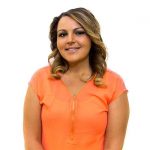Profiles in Recovery

Aimee Quinn
Quinn woke up in a hospital Intensive Care Unit after nine days in a coma – one of several opioid overdoses that she had survived. Painful childhood trauma was at the root of her long battle with prescription pills, heroin and cocaine.
“Getting high helped me escape reality and allowed me to be whoever I wanted to be,” Quinn recalls. Waking up from the coma, she vowed to change her life’s course.
“I gave myself a year. I told myself I would do everything I can to get clean and if nothing else worked I would devote my life to getting high,” she says. “Something clicked. I wasn’t on any medications and I started living my life. I went to school, worked full time, got a dog. I’ve done incredible things in my 4 ½ years of recovery.”
Today, Quinn uses her experience to comfort and coach others as a trauma therapist in Florida. She says “the most satisfying thing is to know that I get to make a difference in lives every day.”
PreviousNextDay Job:
Primary therapist/trauma therapist
What I lost to addiction:
I lost everything. My fiancé died during our active addiction. I lost respect and self-worth. I lost family, friends, and was homeless . . . No one wanted to associate with me and I could not handle daily responsibilities. I was lost and did not see any hope for the future.
What worked for me:
I went to inpatient treatment for six months and was in a halfway house until I was 18 months clean. I worked a program and got involved heavily in spirituality.
Rules I live by:
I live by spiritual principles. I try and be the best version of myself and try and be of service wherever I can be. I try and take my experience and use it to help others. I constantly am aware of my reactions and how I carry myself. I want to look in the mirror every day and be able to love myself.
On my bucket list:
My lifelong dream is to travel, continue to be a part of my family, and live my life with passion.
What I value most in recovery:
I value the relationships with my family and friends. I look at all of the families that bury their loved ones on a daily basis and have a lot of gratitude that my family does not have to go through that pain.
My brother passed away when I was 13 and I saw the pain and devastation it caused . . . to be able to be a part of my family and not cause any more harm is the greatest gift of recovery.
What I learned about myself:
That I can overcome almost anything. That when I believe in something, I can accomplish it no matter what obstacles are put in my way.
Stigma I faced:
No one wanted to hire me or associate with me outside of the (support groups) because no one understood addiction. I have faced many doors being closed in my face due to being an addict. It motivates me that much more to break the cycle of addiction.
I get inspired by:
How much I can overcome. I learned that I am a person of value and can help many people. I work in a field where hope is rare, but to be able to help people want to live is the greatest gift. To be able to save one family the heartache or funeral makes it worth it.
On finding purpose:
Find who you are and listen to your heart. Take away the labels people put on you and decide for yourself who and what you want to be.
SHED THE STIGMA:
If you’re a person in long-term recovery who wants to share your
insights, please contact us at [email protected].